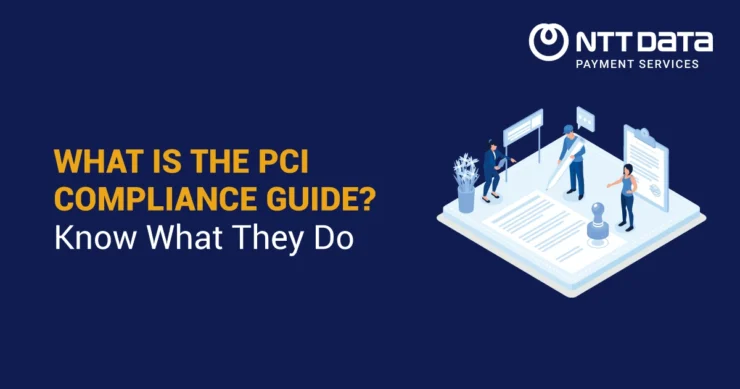
Table of Contents
What is PCI Compliance?
PCI compliance refers to adherence to the Payment Card Industry Data Security Standard (PCI DSS), a set of security standards designed to ensure that all companies that accept, process, store, or transmit credit card information maintain a secure environment.
These standards were established by major credit card companies and are overseen by the PCI Security Standards Council (PCI SSC).
What is the PCI Compliance Guide?
The PCI Compliance Guide is a comprehensive resource provided by the PCI Security Standards Council to help businesses understand and implement PCI DSS requirements. It offers detailed information on each requirement, best practices for achieving compliance, and guidance on maintaining compliance over time. The guide is designed to assist businesses of all sizes and industries in navigating the complexities of PCI DSS and ensuring that they meet the necessary security standards.
What is the primary goal of PCI Compliance?
The primary goal of PCI compliance is to protect cardholder data and reduce credit card fraud. PCI DSS comprises of 12 main requirements, which are grouped into six categories. Let us discuss each requirement briefly.
- Building and maintaining a secure network and systems:
To protect cardholder data, it is essential to install and maintain a strong firewall configuration. Additionally, vendor-supplied defaults for system passwords and other security parameters should be replaced with unique, secure alternatives to prevent unauthorised access that ensures system integrity.
- Protecting cardholder data:
To safeguard cardholder data, it is important to protect any stored information and ensure that transmission of this data across open, public networks is encrypted thoroughly. This helps prevent unauthorised access and secures sensitive information during transmission.
- Maintaining a vulnerability management program:
To ensure system security, it is important to protect all systems against malware by regularly updating anti-virus software or programs. Additionally, developing and maintaining secure systems and applications helps guard against vulnerabilities and potential threats.
- Implement Strong Access Control Measures:
Access to cardholder data should be restricted based on business needs to ensure that only authorised personnel can view or handle sensitive information. It is important to identify and authenticate individuals who access system components and implement measures to restrict physical access to cardholder data, ensuring both digital and physical security.
- Regularly Monitor and Test Networks:
To ensure the security of network resources and cardholder data, it is essential to track and monitor all access consistently. Regular testing of security systems and processes is also critical to identify vulnerabilities and maintain robust protection against potential threats.
- Maintain an Information Security Policy:
It is important to maintain a comprehensive policy that addresses information security for all personnel. This policy should outline guidelines, responsibilities, and best practices to ensure that everyone within the organisation understands their role in protecting sensitive data and upholding security protocols.
Benefits of PCI Compliance Guide:
A PCI compliance guide offers several benefits for businesses aiming to meet the Payment Card Industry Data Security Standard (PCI DSS). Let us discuss some key advantages briefly.
- Helps businesses implement strong security measures to protect sensitive cardholder data from breaches and fraud, enhancing security.
- Boosts customer confidence and trust by demonstrating a commitment to safeguarding financial information.
- Helps businesses avoid costly fines and penalties due to non-compliance.
- Promotes best security practices, improving overall business processes and efficiency.
- Provides clear and detailed instruction/ guidance to simplify achieving and maintaining PCI DSS compliance.
- Sets businesses apart from competitors, potentially attracting more customers
- Reduces the risk of data breaches and cyberattacks, protecting reputation and financial stability.These benefits speak of the importance of using a PCI compliance guide to ensure that businesses not only meet regulatory requirements but also enhance their security posture and build trust with their customers
Access the best online payments with NTT DATA Payment Services India
NTT DATA Payment Services India offers digital payment solutions and services to help businesses accept digital payments securely and reliably.
NTT DATA Payment Services India offers a complete payment solution to advance both your e-commerce and in-store businesses. From online payment gateway and POS machines to IVR payments and Bharat QR Scan and Pay, we ensure convenience and safety for all your payments.
Conclusion:
The PCI Compliance Guide serves as an invaluable resource, providing businesses with clear, actionable steps to achieve and maintain compliance. By following this guide, businesses can enhance their security posture, build customer trust, avoid costly penalties, and improve operational efficiency.
Ultimately, PCI compliance is about more than just meeting standards. It is about fostering a secure and trustworthy environment for both businesses and their customers.
FAQs
1.Who needs to follow the PCI compliance guide?
Any business that accepts, processes, stores, or transmits credit card information must follow the PCI compliance guide to ensure they meet the necessary security standards.
2. Is PCI compliance required by law?
While PCI compliance is not mandated by law, it is required by most major credit card companies. Non-compliance can result in fines, penalties, and increased risk of data breaches. Hence, it is recommended to adhere to PCI compliance.
3.Where can businesses find the PCI compliance guide?
The PCI compliance guide is available on the PCI Security Standards Council’s website and can be accessed by any business seeking to understand and implement PCI DSS requirements.
4.How does PCI compliance benefit my business?
PCI compliance protects your customers’ card data, builds customer trust, and reduces the risk of financial penalties due to data breaches. It can also give your business a competitive advantage by demonstrating your commitment to security.
5.How often do I need to validate PCI compliance?
PCI compliance needs to be validated annually. Some businesses may also need to conduct quarterly vulnerability scans if required by their SAQ or audit level.


